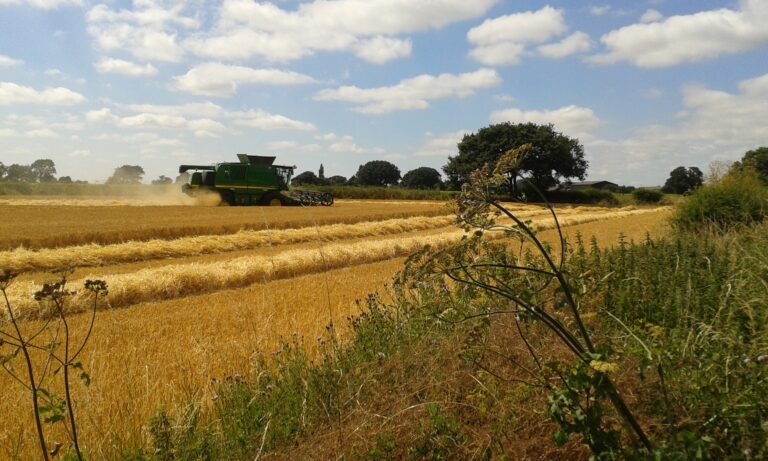Project Description
Sustainable food production is essential to ensure society’s survival. However, food production currently contributes to many environmental problems, including soil degradation, water pollution, biodiversity loss and high greenhouse gas emissions. Regenerative agriculture is heralded as a promising solution and is becoming more widely accepted and adopted both globally and in Europe. Regenerative practices of particular relevance to the UK include no tillage/ minimum tillage, rotational grazing, low external chemical inputs, multi-species cover crops, and agroforestry underpinned by regenerative principles. However, there is a lack of data to substantiate which practices contribute effectively to biodiversity and other outcomes, and under what conditions (Giller et al. 2021). Such information is essential for ensuring the wider adoption of appropriate techniques and reassuring farmers how to get the practices ‘right’ for what they want to achieve.
This PhD project will focus on the benefits of regenerative farming for biodiversity. Determining the impact of farming on biodiversity comes with a broad set of challenges, as there are multiple trade-offs between habitats and species, such that value judgements will inform ‘what kind’ of biodiversity is supported (e.g. wading birds or the species that are their predators). Since changes to farming practices are made by farmers, their values, attitudes and behavioural constraints must be included, not only in designing research, but in the collection of data and interpretation of results. The project will therefore adopt a transdisciplinary approach. In addition, farmers are strongly influenced by what they see ‘works’ on other farms, and value information heard from peers over published research findings. Since farmers are intimately connected to their land and engage with it on a daily basis, they are also a substantial source of observations, and this research will test ways for this knowledge to be integrated into biodiversity data collection.
Project objectives include:
- Co-design research on the impact of regenerative farming practices on biodiversity with farmers and land managers
- Collect and analyse data on the impact of specific practices on selected species, building on literature and any other datasets available locally
- Investigate how scientific and other forms of knowledge (farmer observations) can be brought together to improve and develop practices that achieve results for biodiversity
Research in the Netherlands (Ablas 2023) on farmer involvement in biodiversity monitoring has highlighted lack of knowledge and time constraints as the main challenges to their participation. Building on this, farmland birds are a likely suitable focal species group as they tap into strong sensory and emotional connections to nature – for example, many farmers are keenly aware of the species around them, and specific bird song can mark seasons or timing of farming operations (Whitehouse 2017). Small mammals (e.g. voles), insects (e.g. butterflies, bees) and earthworms (as easily observable ‘ecosystem engineers’) are also potential candidates given their differing ecological roles and likely responses to regenerative practices. The final choice will have to balance the skill and time required for identification, farmer interest, and predictive power for effects of regenerative farming practices (e.g. are there key species whose presence indicates an improved overall state of biodiversity of the ecosystem).
CANDIDATE BACKGROUND
Essential personal characteristics:
- determination, ambition, tenacity, resolve, ability to take constructive criticism
Essential skills:
- Experience of engaging with farmers and land managers (in a research or non-research context) in the UK or Ireland
- Understanding of the environmental and socio-political context for farming
Desirable skills:
- Experience of organising events (e.g. workshops)
- Familiarity with empirical social science methods, e.g. semi-structured interviews
- Awareness of citizen science approaches
Photo credit: Katrin Prager, UOA
Supervisors
Primary Supervisor: | Dr Katrin Prager, University of Aberdeen, School of Geosciences; Dept Geography & Environment Email: katrin.prager@abdn.a.uk |
Neil ReidSecondary Supervisor: | Profile: Neil Reid Email: neil.reid@qub.ac.uk Institution: Queen's University, Belfast Department/School: School of Biological Sciences |
Thomas BodeyAdditional Supervisor: | Profile: Thomas Bodey Email: thomas.bodey@abdn.ac.uk Institution: University of Aberdeen Department/School: School of Biological Sciences |
Additional Supervisor: | Dr Andrew Whitehouse, University of Aberdeen, School of Social Sciences |
References
Giller, K. E., Hijbeek, R., Andersson, J. A., & Sumberg, J. (2021). Regenerative Agriculture: An agronomic perspective. Outlook on Agriculture, 50 (1), 13–25. https://doi.org/10.1177/0030727021998063
Alblas, E., & van Zeben, J. (2023). Public participation for a greener Europe: The potential of farmers in biodiversity monitoring. Land Use Policy, 127, 106577. https://doi.org/10.1016/j.landusepol.2023.106577
Whitehouse, A. 2017. ‘Loudly sing cuckoo: More-than-human seasonalities in Britain’. The Sociological Review Monographs, 65(1): 171– 187.
QUADRAT Themes
- biodiversity
- environmental-management






















































